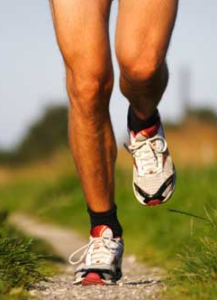 The BJSM £1500 prize for best clinically relevant research by a young investigator was awarded at the International Scientific Tendon Symposium. The winner was Ebonie Rio for her paper: Exercise reduces pain immediately and affects cortical inhibition in patellar tendinopathy (co-authors Dawson Kidgell and Jill Cook).
The BJSM £1500 prize for best clinically relevant research by a young investigator was awarded at the International Scientific Tendon Symposium. The winner was Ebonie Rio for her paper: Exercise reduces pain immediately and affects cortical inhibition in patellar tendinopathy (co-authors Dawson Kidgell and Jill Cook).
The judging panel consisted of Prof Malcolm Collins (scientist, South Africa), Dr. Guy Simoneau (physiotherapist, Canada), Dr Hazel Screen (scientist, Britain), and Dr Jon Rees (rheumatologist, Britain). Fourteen potential papers were ranked on abstract before the conference and the top 4 were judged on their research presentation.
We caught up with Ebonie Rio to learn more about her, and the award’s impact:
Can you share your academic background with the BJSM blog community?
I have a Bachelor’s of Applied Science in Human Movement, a Bachelors of Physiotherapy (hons), a Master’s of Sports Physiotherapy, and am currently a PhD candidate, in Monash University’s Monash Tendon Research group (Australia), in the Department of Physiotherapy. My Clinical experience involves time at the Australian Institute of Sport, Physio for Disney’s The Lion King (Melbourne and Shanghai), Australian Ballet Company, Victorian Institute of Sport, 2006 Commonwealth Games, 2010 Winter Olympics, and the 2012 Paralympics.
What was your favourite session of ISTS 2014?
I really enjoyed listening to Jo Gibson and her very clinically relevant presentation on management and evidence relating to central sensitisation for upper limb disorders.
Why are you excited to have won the award?
I am so grateful to BJSM and the committee for the award. It is such an honour as the standard of research presented was fantastic and there are so many wonderful young researchers emerging. I am excited as it will allow us to forge ahead with one of the many project ideas on our whiteboard!